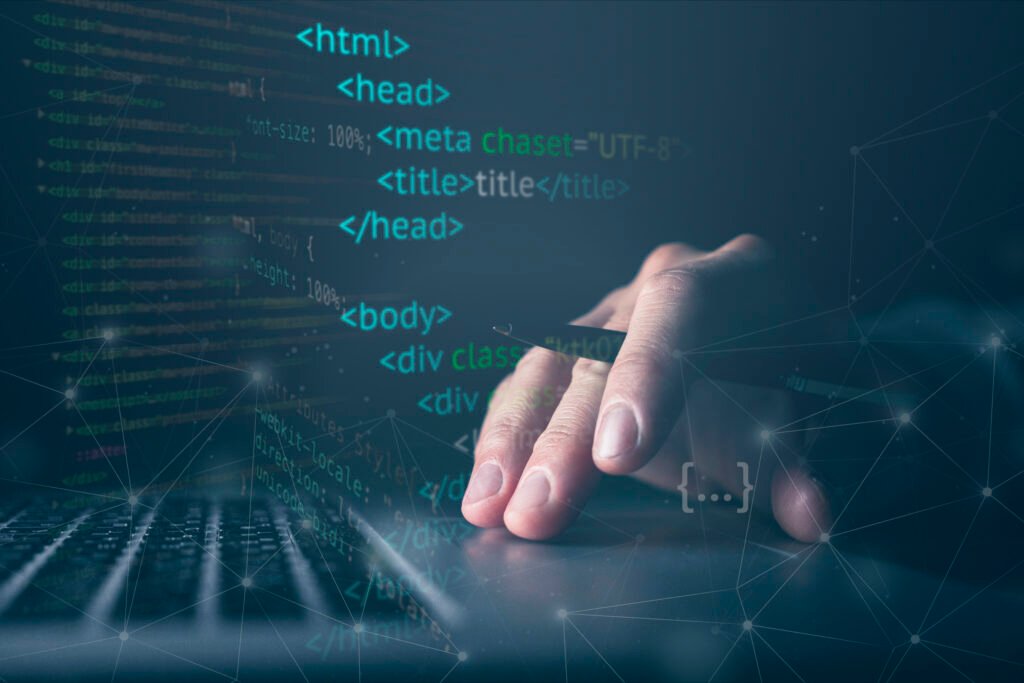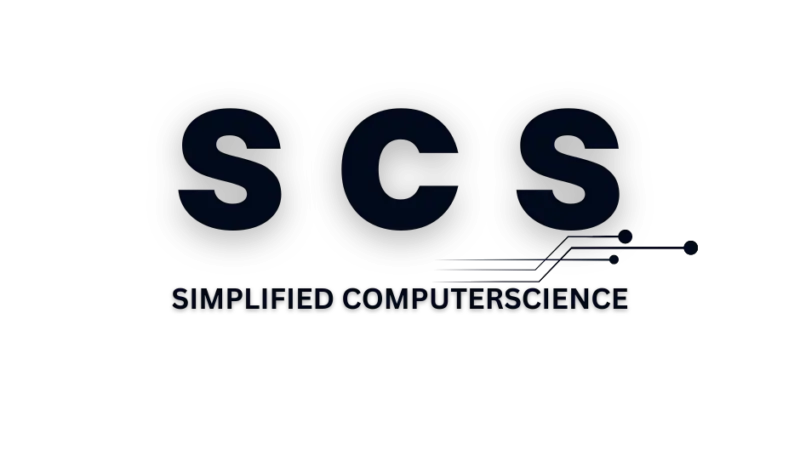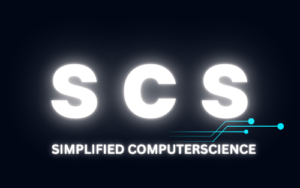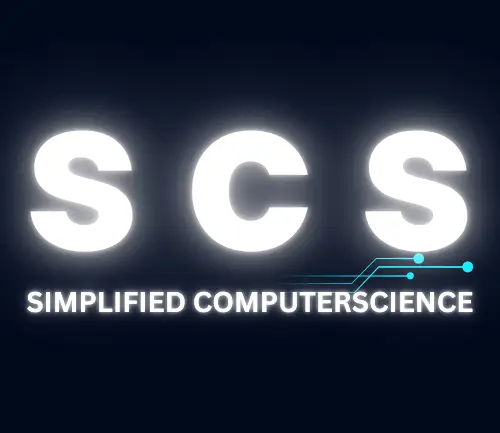Computer Science Basics: Everything You Need to Know to Get Started
- By Prerana
- Posted in Computer Science / Career and Roadmaps
- 0 Comments
- Updated
- 5 mins read

Introduction:
Welcome to the world of Computer Science! Whether you’re starting your academic journey or just looking to broaden your knowledge, understanding the basics of Computer Science is the first step towards becoming proficient in the field. This article will introduce you to the essential concepts, key terminology, and foundational topics that make up the heart of Computer Science, designed with the 2024 syllabus in mind.
What is Computer Science?
Computer Science is the study of computers and computational systems. It involves understanding how computers process information, how software is developed, and how data is handled. While many think of Computer Science as just coding or programming, the field is far more extensive. It covers areas like data structures, algorithms, artificial intelligence, databases, and much more.
For beginners, it’s helpful to think of Computer Science as the science of problem-solving using computers. The tools and techniques learned here are applicable to solving real-world problems efficiently and effectively.
Key Areas of Computer Science
Algorithms and Data Structures
- Algorithms are step-by-step instructions that tell the computer how to perform a task. Understanding algorithms allows you to write code that solves problems in an optimized way.
- Data Structures organize and store data. Common types include arrays, linked lists, trees, and graphs. Learning these structures is fundamental because they affect the performance of your program.
Programming Languages
- Programming is at the heart of Computer Science. Some popular programming languages include Python, Java, C++, and JavaScript. Each language has its strengths, and knowing the right one for the task is essential.
- The 2024 syllabus focuses on Python for beginners due to its readability and widespread use in educational settings.
Software Engineering
- Software Engineering deals with designing, building, and maintaining software applications. It includes methodologies like Agile and Waterfall, as well as tools for version control (e.g., Git).
Artificial Intelligence and Machine Learning
- AI is the simulation of human intelligence processes by machines. It includes Machine Learning, where computers learn from data to make decisions without explicit programming. The 2024 syllabus emphasizes the growing importance of AI in fields like healthcare, finance, and robotics.
Databases
- Understanding how to organize, store, and retrieve data is crucial for any programmer. Databases like MySQL and MongoDB are commonly used in real-world applications.
Networking and Security
- Networking is about connecting computers and systems, allowing them to communicate and share resources. It covers everything from local networks to the global Internet.
- Cybersecurity ensures the protection of data and systems from malicious threats. In the 2024 syllabus, this area focuses on encryption, firewalls, and secure software development practices.
The 2024 Syllabus Overview
In 2024, the Computer Science syllabus for beginners is structured to provide foundational knowledge and practical skills. The focus is on both theoretical concepts and hands-on experience to prepare students for real-world applications. Here’s what the syllabus typically includes:
Fundamentals of Programming
Students are introduced to basic programming concepts, using languages like Python. Topics covered include variables, data types, loops, conditionals, and functions.Problem-Solving Techniques
Problem-solving is a critical skill for any computer scientist. The syllabus encourages students to break down problems into smaller, manageable parts using algorithms and data structures.Understanding Computer Systems
Basic hardware concepts like CPUs, memory, and storage are covered, providing students with an understanding of how software interacts with hardware.Introduction to Web Development
Basic HTML, CSS, and JavaScript are introduced to help students understand how websites are created and structured.Ethical Computing
With technology advancing rapidly, students are also taught the ethical implications of computing. This includes data privacy, the environmental impact of technology, and the importance of ethical decision-making in software development.
Why Learn Computer Science?
Versatility and Career Opportunities
Computer Science is a gateway to a wide range of careers. From software development to data science, cybersecurity, and AI, there is an increasing demand for skilled professionals.Problem-Solving and Critical Thinking
Learning Computer Science enhances your ability to approach problems logically and solve them efficiently. It encourages critical thinking, pattern recognition, and creativity.Innovation and Future-Proofing
With technology constantly evolving, understanding Computer Science positions you for future innovations in fields like quantum computing, AI, and blockchain.
How to Start Your Journey in Computer Science
If you’re a complete beginner, don’t worry! Here’s how you can get started:
Pick a Programming Language
Start with Python, which is simple, easy to understand, and powerful enough for advanced topics. Numerous online platforms like Codecademy, freeCodeCamp, and Coursera offer free resources to learn programming.Practice Problem-Solving
Websites like LeetCode and HackerRank provide practice problems that help you improve your algorithmic thinking and coding skills.Build Small Projects
Apply what you’ve learned by building simple projects. Start with things like a calculator, a to-do list, or a personal blog. These projects will give you hands-on experience and make abstract concepts concrete.Explore Advanced Topics
Once you’re comfortable with the basics, dive into more advanced topics like data structures, algorithms, and AI. Participate in open-source projects and collaborate with others to grow your skills.
Key Takeaways
- Computer Science is about problem-solving, and it extends far beyond programming. It encompasses a wide array of fields, from algorithms to AI and cybersecurity.
- Programming languages like Python and JavaScript are your tools to bring your ideas to life.
- The 2024 syllabus emphasizes practical learning, with a balanced mix of theory and hands-on experience.
- Starting with small projects and gradually advancing to more complex topics will help you build a strong foundation.
Are you ready to dive deeper into Computer Science? Start learning with our free introductory courses on Python programming and data structures today! Share your experiences or questions in the comments below, and let us know how we can support you on your learning journey!
Algorithms Artificial Intelligence Artificial Intelligence and Machine Learning Basics of Computer Science Best AI Tools Blogging Career Roadmap ChatGPT Coding Skills Computer Science Computer Science Concepts Computer Science for Beginners Content Creation Data Science Data Structures Free Online Courses HR technology Insight blogs Introduction to Computer Science Machine Learning Python Programming Recruitment automation Social Media Software Engineering
- Artificial
- Intelligence
- MACHINE LEARNING
- Web Devlopments
- CODING AND PROGRAMMING
- Prompt
- Engineering
- DIGITAL MARKETING
- SQL
- Graphic Design
- PYTHON
- generative ai
- Data SCIENCE
Recent Posts
-
Understanding Artificial Intelligence: A Beginner’s Guide to AI | Simplified Computer Science7 October 2024/0 Comments
-
Effective Project Execution: From Inception to Completion9 September 2024/
-
How to Create a Project Website on WordPress Without Coding9 September 2024/
| M | T | W | T | F | S | S |
|---|---|---|---|---|---|---|
| 1 | ||||||
| 2 | 3 | 4 | 5 | 6 | 7 | 8 |
| 9 | 10 | 11 | 12 | 13 | 14 | 15 |
| 16 | 17 | 18 | 19 | 20 | 21 | 22 |
| 23 | 24 | 25 | 26 | 27 | 28 | 29 |
| 30 | 31 | |||||


